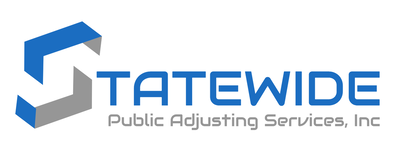BLOG |
- Home
- Services
- About
-
Locations
- Public Adjuster Aventura
- Public Adjuster Boca Raton
- Public Adjuster Boynton Beach
- Public Adjuster Broward County
- Public Adjuster Carol City
- Public Adjuster Cooper City
- Public Adjuster Coral Gables
- Public Adjuster Dania Beach
- Public Adjuster Deerfield Beach
- Public Adjuster Delray Beach
- Public Adjuster Doral
- Public Adjuster Fort Lauderdale
- Public Adjuster Hallandale Beach
- Public Adjuster Hialeah
- Public Adjuster Hollywood, FL
- Public Adjuster Homestead
- Public Adjuster Kendall
- Public Adjuster Key Biscayne
- Public Adjuster Lake Worth
- Public Adjuster Margate
- Public Adjuster Miami
- Public Adjuster Miami Beach
- Public Adjuster Miami Gardens
- Public Adjuster Miami Lakes
- Public Adjuster Monroe County
- Public Adjuster Naples
- Public Adjuster Palmetto Bay
- Public Adjuster Pembroke Pines
- Public Adjuster Pinecrest
- Public Adjuster Pompano Beach
- Public Adjuster Port St. Lucie
- Public Adjuster Sunny Isles Beach
- Public Adjuster Sunrise
- Public Adjuster Tamarac
- Public Adjuster Tampa
- Public Adjuster West Palm Beach
- Fire Public Adjusters
- Hurricane Public Adjusters
- Ajustador Público Florida
- Blog
- Contact
|
AuthorWrite something about yourself. No need to be fancy, just an overview. Archives
July 2024
Categories |
Business Hours Telephone Fax E-Mail
M-Sun: 24 Hours (305) 244-4247 (305) 402-3298 [email protected]
M-Sun: 24 Hours (305) 244-4247 (305) 402-3298 [email protected]
© 2024 Statewide Public Adjusting Services, Inc. Gustavo Garayburu. President. FL PA License #W211582.
Georgia. 3303070. South Carolina. 17362153.
17431 SW 153rd Ct, Miami, FL 33187
Privacy Policy
Georgia. 3303070. South Carolina. 17362153.
17431 SW 153rd Ct, Miami, FL 33187
Privacy Policy
- Home
- Services
- About
-
Locations
- Public Adjuster Aventura
- Public Adjuster Boca Raton
- Public Adjuster Boynton Beach
- Public Adjuster Broward County
- Public Adjuster Carol City
- Public Adjuster Cooper City
- Public Adjuster Coral Gables
- Public Adjuster Dania Beach
- Public Adjuster Deerfield Beach
- Public Adjuster Delray Beach
- Public Adjuster Doral
- Public Adjuster Fort Lauderdale
- Public Adjuster Hallandale Beach
- Public Adjuster Hialeah
- Public Adjuster Hollywood, FL
- Public Adjuster Homestead
- Public Adjuster Kendall
- Public Adjuster Key Biscayne
- Public Adjuster Lake Worth
- Public Adjuster Margate
- Public Adjuster Miami
- Public Adjuster Miami Beach
- Public Adjuster Miami Gardens
- Public Adjuster Miami Lakes
- Public Adjuster Monroe County
- Public Adjuster Naples
- Public Adjuster Palmetto Bay
- Public Adjuster Pembroke Pines
- Public Adjuster Pinecrest
- Public Adjuster Pompano Beach
- Public Adjuster Port St. Lucie
- Public Adjuster Sunny Isles Beach
- Public Adjuster Sunrise
- Public Adjuster Tamarac
- Public Adjuster Tampa
- Public Adjuster West Palm Beach
- Fire Public Adjusters
- Hurricane Public Adjusters
- Ajustador Público Florida
- Blog
- Contact


 RSS Feed
RSS Feed
